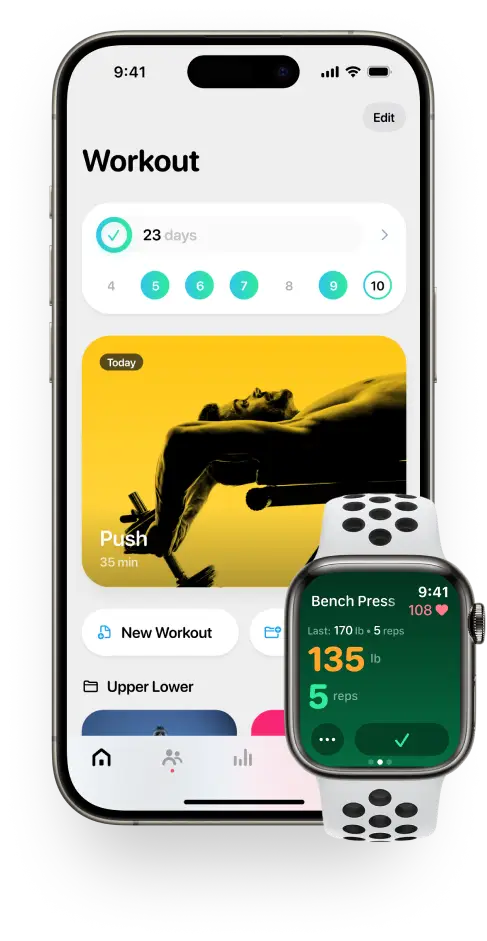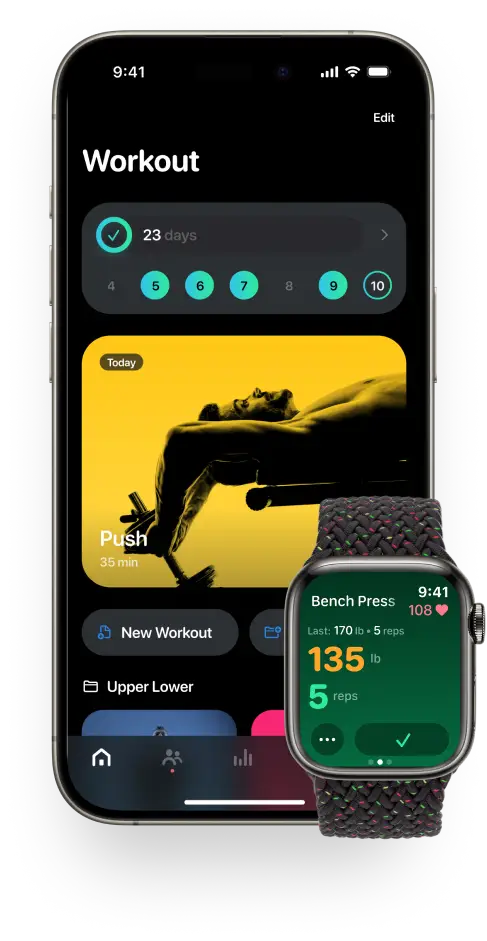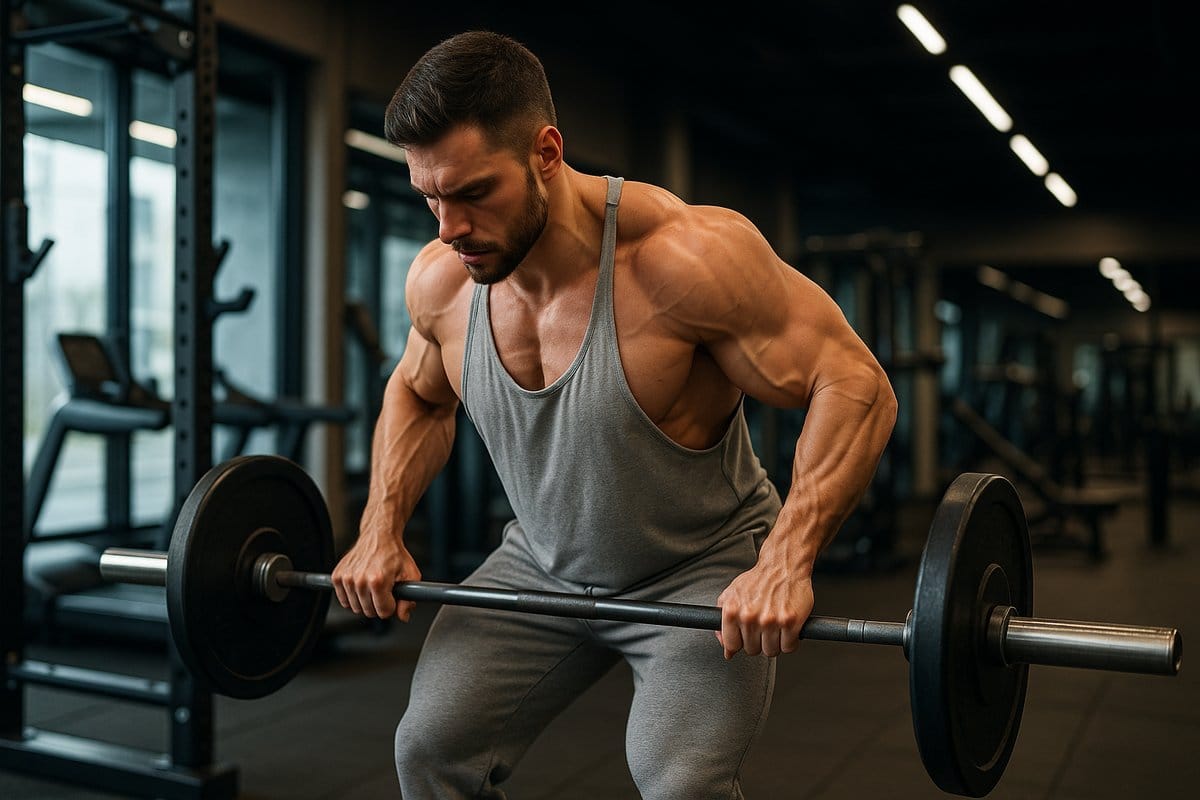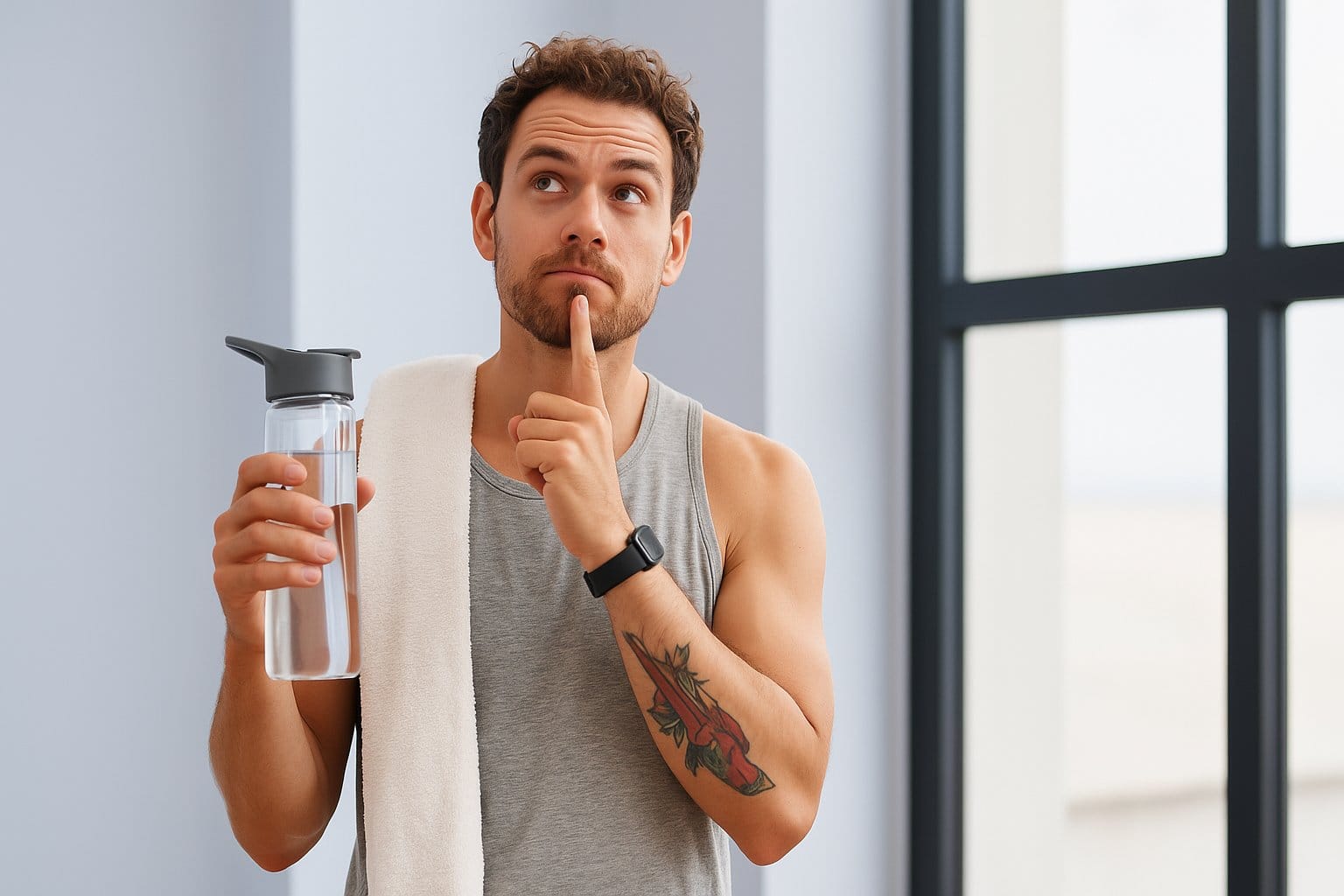Nap After Workout: Will Hitting the Sheets Kill Your Gains?
This is a guide to sleeping after exercise. Lean what happens when you nap after a workout and whether it can impact your gym progress.
Honk shoo, mimimi.
If you conk out directly after your workout, how does it impact your ability to reap the benefits of exercise?
We often think about lofty goals like, say, building the body of a Greek god or developing cut V-lines when we’re in the gym. But contemplating our recovery processes so we can rest to build those muscles is just as much a part of the picture.
Does a nap after a workout affect your ability to build muscle or lose fat? Here’s what you need to know about napping after a workout.

Effects of Sleep Deprivation
Sleep deprivation is considered a worldwide public health problem. In an increasingly round-the-clock society, more and more of us around the world grapple with the effects of insufficient sleep.
Varying studies from the American Academy of Sleep Medicine (AASM), the Sleep Research Society (SRS) and the National Sleep Foundation (NSF) have indicated that most adults need anywhere from 7-9 hours of sleep per night.
This can differ based on age, fitness level or other factors like health conditions or genetics.
Poor sleep has several effects on your body including:
Cognition
Consistently poor sleep can have an impact on your mental cognition. Although you may not consider yourself a risk seeker, lack of sleep can cause you to take risks you wouldn't ordinarily take. even when you're not consciously aware that you're doing it. As you can imagine, this could lead to some very gnarly consequences.
Mood
Lack of sleep could make you irritable, moody, or easily frustrated. This is something that applies to people of any age, although teenagers, college students, and working-age adults were noted to be particularly hit by the impact of lack of sleep on their moods. A study reported that all three of these groups were likely to feel nervous with lack of sleep, and most study participants noticed negative feelings.
Focus
Being chronically sleep-deprived makes your vigilance and attention to detail take a hit. A study found that some participants were five times to have attention lapses after failing to get enough sleep. Participants also had decreased reaction time compared to people who had healthy amounts of sleep.
If you're involved in sports, you can imagine how important it is to have good reaction times and reflexes. This is also true in everyday activities like driving a car for obvious reasons.
Mental Health & Daily Activities
Chronic lack of sleep can take a toll on your mental health. Among working-age people, too little sleep can cause them to be less attentive in the workplace sometimes even making critical mistakes.
Disease Risk
Bad sleep is also associated with a higher likelihood of cardiovascular health problems. Among most ethnic groups, lack of sleep is considered a contributing factor to diabetes.
Why Do I Feel Like Sleeping After a Workout?
Sleepiness after exertive exercise is pretty natural, especially when it comes to the type of high-impact exercise that taxes your nervous system.
Exercise causes your muscles to deplete your glycogen. Glycogen is a type of sugar mostly stored in your skeletal muscles and your liver.
To make your muscles work, your body needs to convert glycogen to ATP or adenosine triphosphate. this form of usable energy powers all the cells of your body.
Using up all your glycogen stores with ATP causes your body to feel tired. When glycogen breaks down, it also converts to lactic acid. You're probably familiar with the feeling of sore or heavy muscles after a very hard workout. That's lactic acid doing its job.
Although lactic acid is essential for muscular function and muscle recovery, it can make you feel sluggish. All this contributes to the feeling of getting tired or sleepy after a workout.
Nap After Workout
During sleep, as during exercise, your body takes the time to rest, relax, and recuperate.
Naps can help in muscular recovery or ease your fatigue if your workout is particularly tough. But is sleeping after a workout really worth it, or should you just push yourself to stay awake and sleep when bedtime hits?
Take a look at a few benefits and drawbacks of sleeping after you work out.
Benefits
- Muscle Recovery: Yes, hitting the sack could help you work your way to a more aesthetic body! Sleep is essential for cellular function in humans. Research from the journal Medical Hypotheses shows that a negative or insufficient sleep pattern can throw off your hormones. It may cause spikes in cortisol, a drop in testosterone levels and reductions in growth hormones required to build muscle.
Muscle growth (hypertrophy) depends on the activation of muscle synthesis pathways in your body. These allow your muscle fibres to be stimulated by your brain so that the muscles swell and grow in size.
All the hormonal activity that goes on in your body caused by lack of sleep stimulates reactions that lead to protein degradation, not the protein synthesis you need to build muscle and achieve hypertrophy.
So basically, good sleep remedies this. it causes the hormonal processes within your body to work to facilitate protein synthesis and help Your muscles recover and grow after stress.
- Less Fatigue: When you feel less tired after a workout, you're more likely to go about the everyday emotions of your day. Not only can you feel mental fatigue, but your muscles can get fatigued as well. when the muscles work hard, You deplete your store of ATP.
This chemical, which is formerly called adenosine triphosphate, is the driving energy force that powers your cells. Once you burn through a lot of high-intensity exercise, your ATP stores go down. This causes your muscles to get fatigued you may feel tired and you may notice soreness as well. Taking a nap gives your muscles some much-needed time to rest. It also gets you off your feet, so if you're physically sore you can recuperate.
Drawbacks
Napping after a workout can come with some disadvantages too.
These can include:
- Poor night’s sleep: If you hit the snooze button right after your gym sesh, you may not be able to get to sleep easily once bedtime rolls around.
Although if you’re happing, there’s a good chance you need it, getting in the habit of taking naps all the time or chronically feeling fatigued may indicate that you are lacking proper sleep at night or may be the signal of a broader medical issue.
- Inadequate rest times between sets: If you feel depleted and in need of a nap after your workout, it could be an indicator that you’re not getting enough rest between sets at the gym.
The purpose of rests between sets is to let your muscles get rid of the waste that builds up when you exercise, to regain your normal breath pattern so you don’t get winded and to boost up your energy for the next round of reps. If you’re not resting and taking proper breaks or properly pacing your workouts at the gym, it could lead to excessive tiredness the minute you step away from the weight rack.
How Long Should a Nap Be?
If you need to nap, aim for no more than 20-30 minutes.
There are two ideal time lengths for naps. Let's see at what point you should set an alarm and where you can keep on dreaming.
Under 30 Minutes
Aiming for a nap of 15-20 minutes, but no more than 30 is a good benchmark if you want to take a quick post-workout power nap. When you nap for around 20 minutes, your body enters What's called the stage 2 nap zone.
There are three stages of non-rapid eye movement sleep (NREM) that you go through before you get into REM sleep.
REM sleep is considered a full sleep stage where your muscles relax your eyes move quickly and you have more brain activity and a higher heart rate.
The reason you want to wake up after about 20 minutes from a nap is because, around the 30-minute mark, you start to teeter over the edge of stage 2 and enter stage 3 sleep. Stage 3 is considered a deeper form of sleep which is harder for your body to wake up from comfortably. Pulling yourself out of sleep at stage 2 usually helps alleviate the adverse effects of coming out of a nap.
90 Minutes
90 minutes is roughly the time of a complete sleep cycle. Research indicates that during a night of regular sleep, your body cycles through this cycle around 4-6 times.
If you are getting a 90-minute nap during the day, you complete only one of these sleep cycles. However, getting a complete sleep cycle shouldn’t leave you feeling groggy. If you come out of the sleep cycle at around the 90-minute mark, you are breaking out of your slumber during a period of light sleep, not deep sleep.
The Takeaway
For most people, naps are healthy.
They can offer a chance for your body and mind to take a brief pause to recuperate, down-regulate and let your nervous system gear up for whatever you have left to do in your day.
This is no different when naps are applied post-exercise. If you’re feeling too lazy to work out, it’s okay to take a nap beforehand too. Despite this, try to keep your post-workout naps to either 20-ish minutes or 90 minutes.
A short nap lets you rest without entering deep sleep, while a 90-minute nap lets you go through one full sleep cycle, so when your body breaks out of sleep, it’s during a period of lighter rest. This should make you feel less groggy and disoriented when you come to.
On top of proper sleep, make sure you spend time on muscular recovery techniques after you workout. You can include methods like muscular scraping, stretching or massage.
Dialing in your diet as well and making sure you understand how pre-workouts, supplements like creatine, and eating enough protein can impact your workouts goes hand in hand with sleeping well. Hey, by the way, is taking creatine before bed a good idea anyway?
Learn more about sleep, nutrition, or other ways to fuel your workouts. Flex offers an all-in-one workout platform to help you learn new exercises, visualize your fitness journey and keep all your PRs in one place.
We’ve made it simple to work on customized fitness plans or to introduce a little friendly competition to your fitness community by sharing exercises with your friends. Try it for free through the Flex fitness app.
References :
Chattu, V. K., Manzar, M. D., Kumary, S., Burman, D., Spence, D. W., & Pandi-Perumal, S. R. (2018). The Global Problem of Insufficient Sleep and Its Serious Public Health Implications. Healthcare (Basel, Switzerland), 7(1), 1. https://doi.org/10.3390/healthcare7010001
Dattilo, M., Antunes, H. K., Medeiros, A., Mônico Neto, M., Souza, H. S., Tufik, S., & de Mello, M. T. (2011). Sleep and muscle recovery: endocrinological and molecular basis for a new and promising hypothesis. Medical hypotheses, 77(2), 220–222. https://doi.org/10.1016/j.mehy.2011.04.017
Krzysztofik, M., Wilk, M., Wojdała, G., & Gołaś, A. (2019). Maximizing Muscle Hypertrophy: A Systematic Review of Advanced Resistance Training Techniques and Methods. International journal of environmental research and public health, 16(24), 4897. https://doi.org/10.3390/ijerph16244897
Mantua, J., & Spencer, R. M. C. (2017). Exploring the nap paradox: are mid-day sleep bouts a friend or foe?. Sleep medicine, 37, 88–97. https://doi.org/10.1016/j.sleep.2017.01.019
McHill, A. W., Hull, J. T., Wang, W., Czeisler, C. A., & Klerman, E. B. (2018). Chronic sleep curtailment, even without extended (>16-h) wakefulness, degrades human vigilance performance. Proceedings of the National Academy of Sciences of the United States of America, 115(23), 6070–6075. https://doi.org/10.1073/pnas.1706694115
Oginska, H., & Pokorski, J. (2006). Fatigue and mood correlates of sleep length in three age-social groups: School children, students, and employees. Chronobiology international, 23(6), 1317–1328. https://doi.org/10.1080/07420520601089349
Patel AK, Reddy V, Shumway KR, et al. Physiology, Sleep Stages. [Updated 2022 Sep 7]. In: StatPearls [Internet]. Treasure Island (FL): StatPearls Publishing; 2023 Jan-. Available from: https://www.ncbi.nlm.nih.gov/books/NBK526132/
Related articles


Get fit with Flex
Build muscle & lose weight fast for free.
Available on iPhone + Apple Watch





